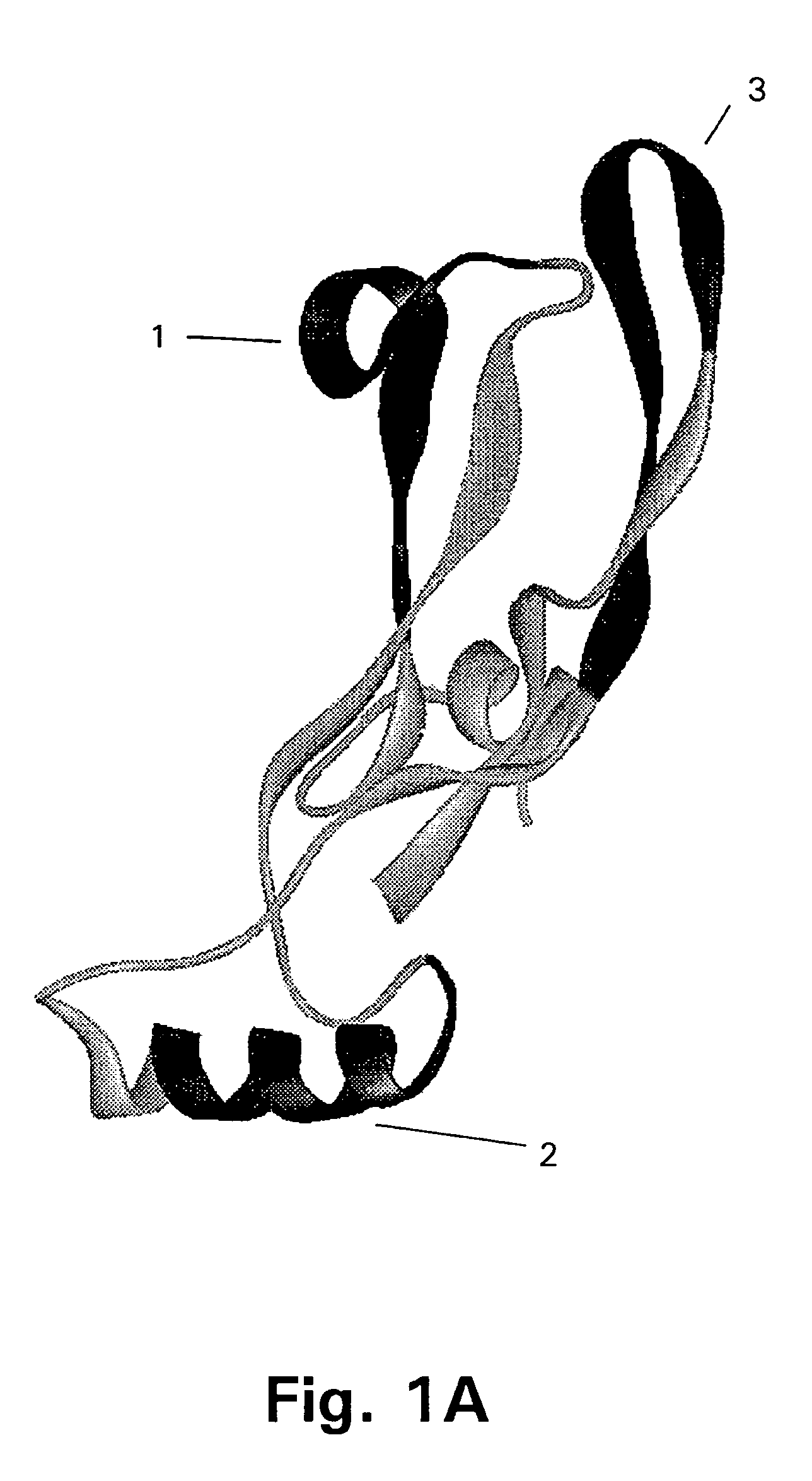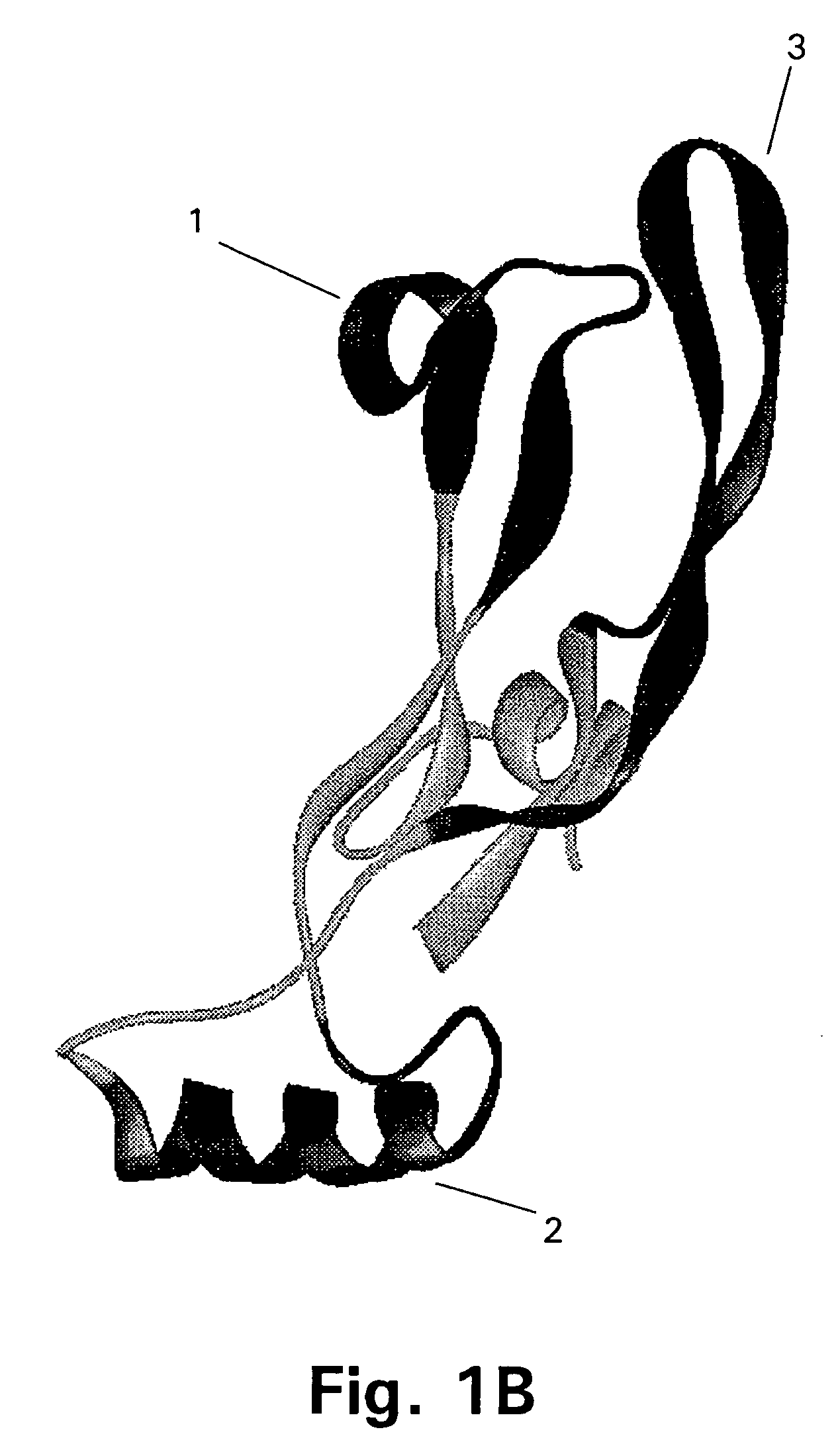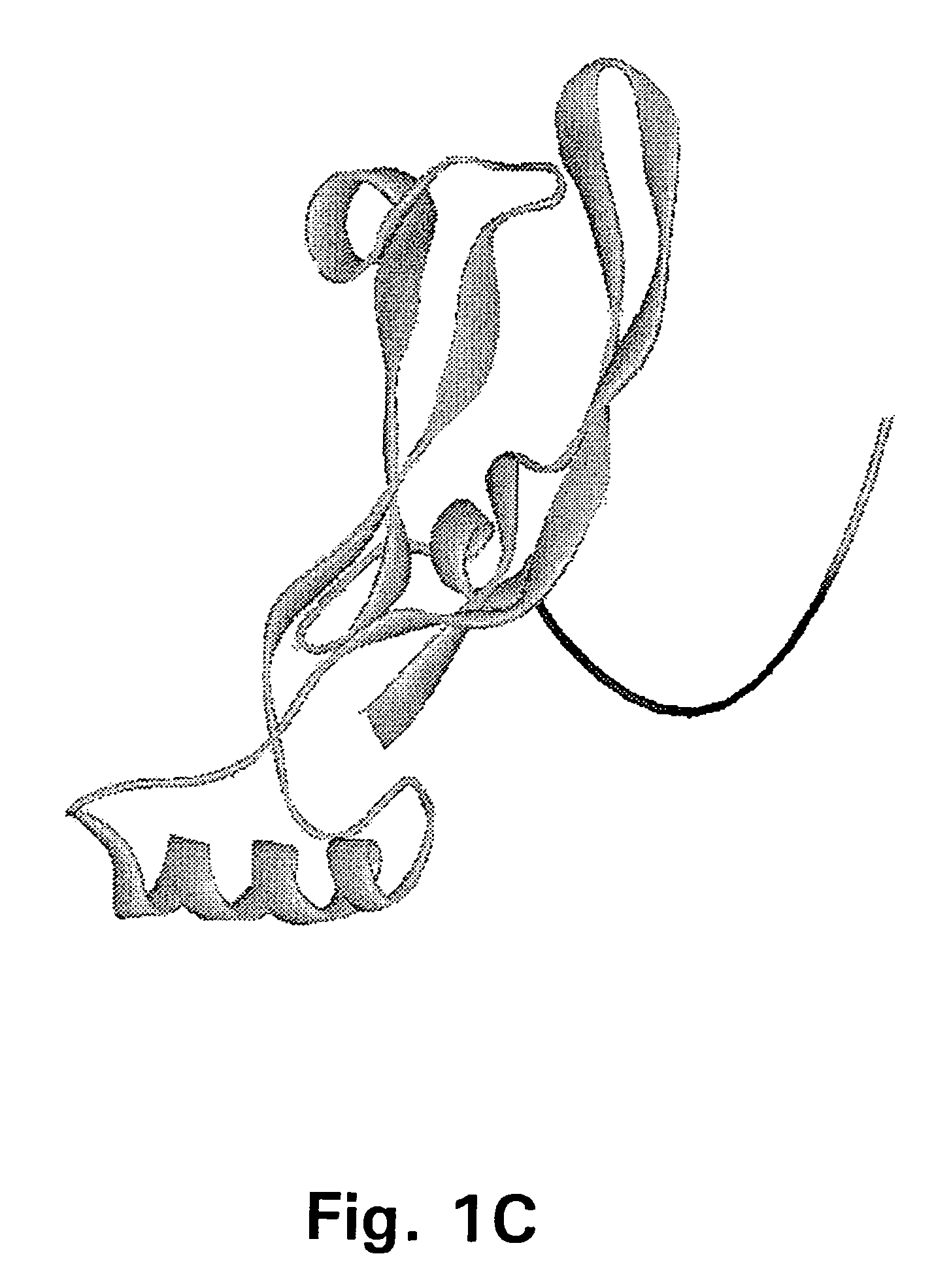Method for down-regulating GDF-8 activity using immunogenic GDF-8 analogues
a technology of immunogenic gdf-8 and gdf-8 analogue, which is applied in the field of downregulating gdf-8 activity using immunogenic gdf-8 analogues, human medicine, can solve the problems of negative affecting meat quality, breeding capability, fat ratio, etc., and achieve the effect of increasing the muscle growth rate of farm animals
- Summary
- Abstract
- Description
- Claims
- Application Information
AI Technical Summary
Benefits of technology
Problems solved by technology
Method used
Image
Examples
example 1
Vaccine Design
[0166]The rationale behind the present invention is to substitute stretches of amino acid residues in the target protein with foreign or artificial T-cell epitopes e.g. the promiscuous tetanus toxin T-cell epitopes P2 and P30. Preferably these substitutions should only minimally disturb the authentic three dimensional structure of the target protein.
[0167]The target protein here is the 109 amino acid residue C-terminal region of GDF-8, the homodimer of which is expected to be the biologically active form of GDF-8. The three-dimensional structure of this region of GDF-8 is not known but based on the structure of the homologous TGF-β protein the model of monomeric GDF-8 shown in FIG. 2 can be anticipated to be reasonably close to reality. In this model of the wild type GDF-8 (wt) α-helices are shown as cylinders and β-sheets are shown as arrows. The cysteine-residues and thus the disulfide-bonds are very closely positioned in the structure.
[0168]It should be borne in min...
example 2
In Vitro Models
[0180]It is contemplated to initially immunise mice with purified GDF-8 variants as described above. After e.g. three immunisations antibodies will be measured in ELISA using the non-modified GDF-8 molecule as the antigen. The primary reason for these initial experiments is to confirm that the AutoVac™ technology is applicable for creating anti-GDF-8 cross reactive autoantibodies and, importantly, to identify the optimal dosing and immunisation regimen. It would, however, be very surprising if antibodies against GDF-8 were not raised using the present technology, since the fundamental immunological mechanisms of such a response are most likely to be identical to those which have already been observed for TNFα, cf. WO 98 / 46642 and WO 95 / 05849.
example 3
In Vivo Models
[0181]Groups of mice will be immunised with the various constructs described in Example 1. The mice will be immunised at the age of about 4 weeks since they have to be immune competent in order to respond to the vaccine. Freund's Complete adjuvant will be used, but experiments will also be performed using an alum adjuvant such as Adjuphos™, which has previously been used successfully in admixture with TNFα autovaccine constructs. Adjuphos™ is accepted for both human and animal use. During the entire immunisation period the total body weight of GDF-8 immunised as well as control animals will be monitored regularly. When the mice are approximately 16 weeks of age, they will be sacrificed and the size of their muscle mass will be determined.
[0182]Due to the relatively narrow window in time where mice are immune competent but still not fully outgrown, it may be difficult to demonstrate an effect of anti-GDF-8 vaccination in these animals. If that proves to be the case, it ...
PUM
| Property | Measurement | Unit |
|---|---|---|
| temperatures | aaaaa | aaaaa |
| flexible | aaaaa | aaaaa |
| cross-resistance | aaaaa | aaaaa |
Abstract
Description
Claims
Application Information
 Login to View More
Login to View More - R&D
- Intellectual Property
- Life Sciences
- Materials
- Tech Scout
- Unparalleled Data Quality
- Higher Quality Content
- 60% Fewer Hallucinations
Browse by: Latest US Patents, China's latest patents, Technical Efficacy Thesaurus, Application Domain, Technology Topic, Popular Technical Reports.
© 2025 PatSnap. All rights reserved.Legal|Privacy policy|Modern Slavery Act Transparency Statement|Sitemap|About US| Contact US: help@patsnap.com



